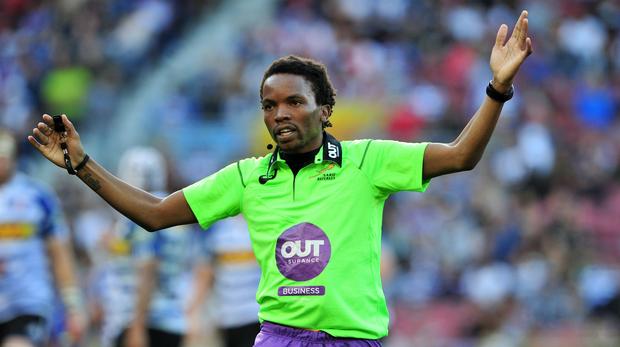The introduction of the captain’s challenge in the Rainbow Cup SA has consigned rugby to more legal drama and fewer exciting finishes, writes ZELIM NEL.
Rugby’s latest ACME anvil, the captain’s challenge would draw a mischievous grin across the face of Wile E Coyote. Convinced they’ve hatched yet another plan destined to catch the metaphorical Road Runner, World Rugby has pulled the trigger on a shotgun pointed at their feet.
It appears as though an innovation from the NFL has been transplanted to rugby without much thought given to how said innovation works in the sport of its origin.
Gridiron’s flagship league introduced a coach’s challenge in 1999 with a view to giving coaches an opportunity to dispute a call from the officials. With each coach given one challenge per half – only deemed to have been used up if the challenge failed – the league hoped to give teams an immediate solution to incorrect calls and reduce the number of results impacted by bad decisions.
On paper, these objectives align very well with where rugby would like to see improvements. Who wouldn’t want to have the officials miss fewer calls?
However, while these two codes may appear to have a lot in common, the similarities stop soon after ‘contact sports involving an oval-shaped ball’. Where football features a forward pass in a stop-start affair designed to maximise in-game TV advertising opportunities, one of rugby union’s most endearing qualities is that forward passes are not allowed in a flowing contest that only pauses for one interval.
Well, at least that’s what’s on the front of the box. On the back is the fine print explaining why some forward passes are allowed, and a disclaimer that more than 50% of the game clock runs with the ball not in play.
The only reason the ball is in play for as much as 38 minutes in a rugby match is because the three match officials turn a blind eye to secondary transgressions throughout. For example, the law states that players in front of the kicker may not advance until they’ve been put onside, but this is almost never applied to the line of fatties that always continue to trundle ahead from an offside position.
Offering rugby captain’s a challenge therefore presents both teams with what is effectively a get-out-of-jail-free card. Teams can now, with a high probability of success, reverse a game-changing event by challenging the referee to pick one of several easy-to-find law transgressions in the immediate buildup.
The NFL understood this threat and therefore restricted coaches from challenging in the final two minutes of either half. But just because we like those Yanks’ ideas enough to copy them doesn’t mean we think they know what they’re doing, right? Rugby opted to expand the scope of a captain’s challenge in the final five minutes of the match.
The rugby audience has already been robbed of try celebrations by tortoise-speed TMO referrals that turn what should be a moment of ecstasy into a courtroom drama. And now this problem has been exacerbated by the likelihood that the elation of every game-winning try or tackle will be further deferred by the opposing captain tattletaling to the referee.
If refs were to apply all the laws, all the time, rugby would never feature an open contest for possession, be free-flowing and have a high rate of ball in play. No matter which way you slice it, the officials will play a big role in the outcome of matches.
The captain’s challenge is only going to slow the game down, increase yellow and red cards, and reduce the number of tries awarded.




